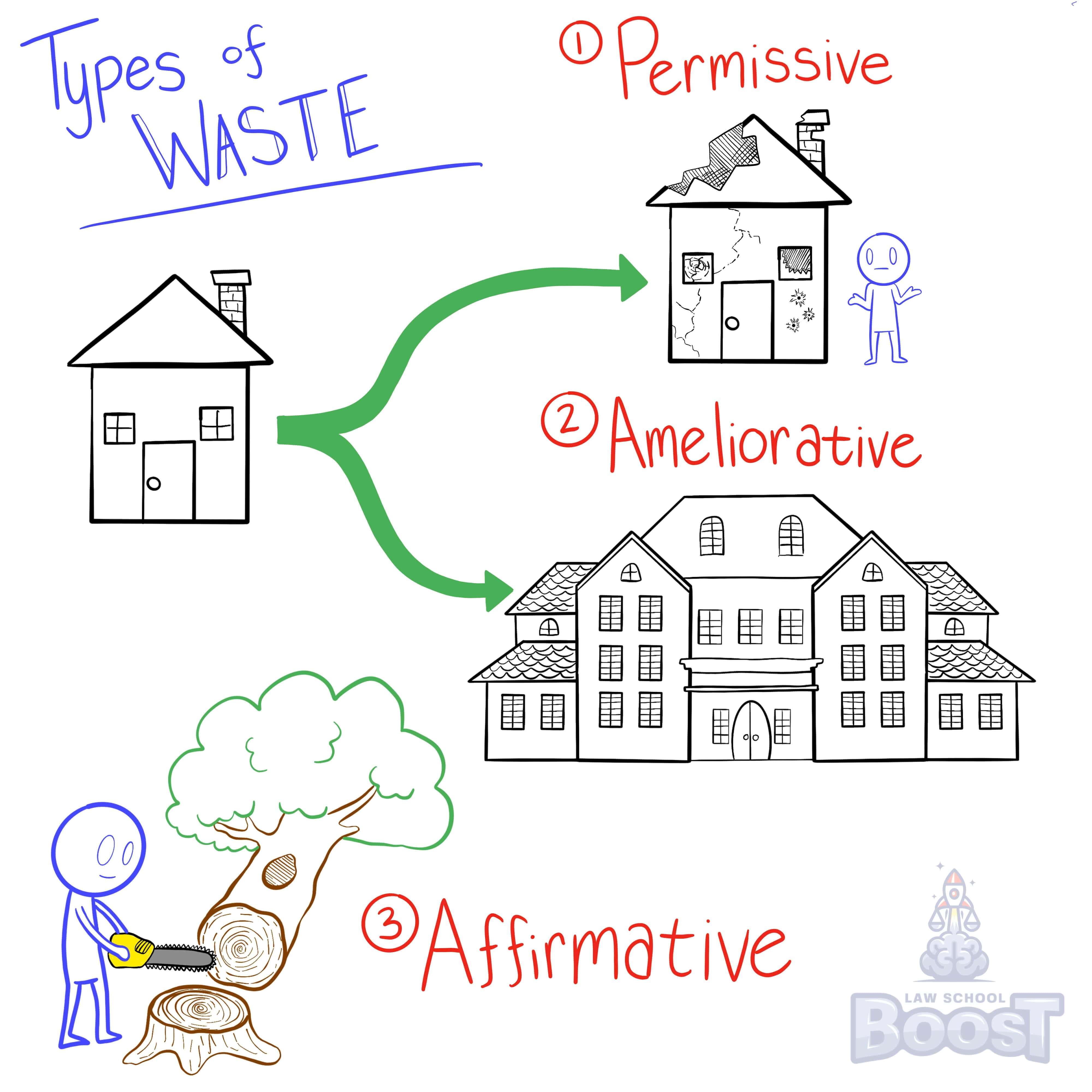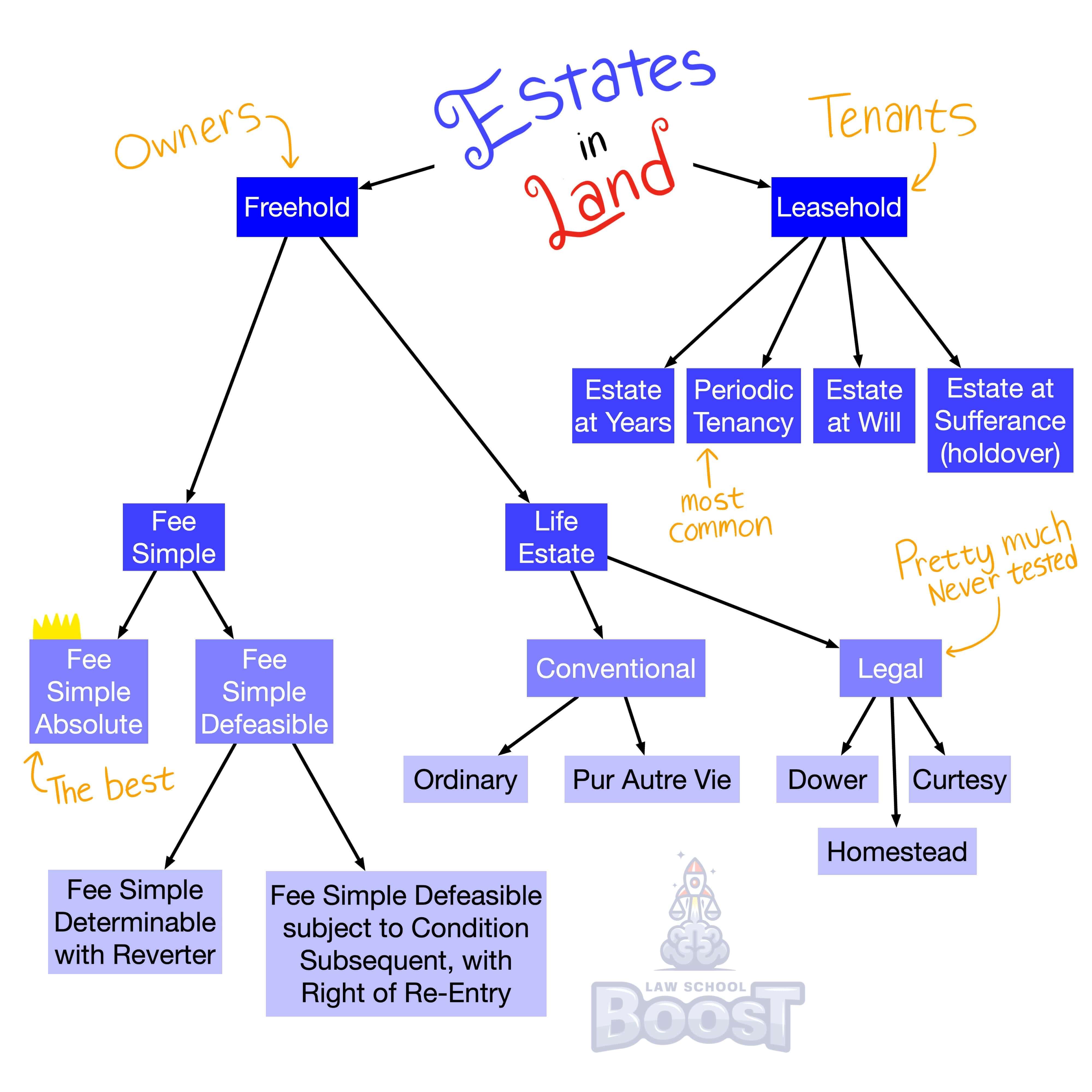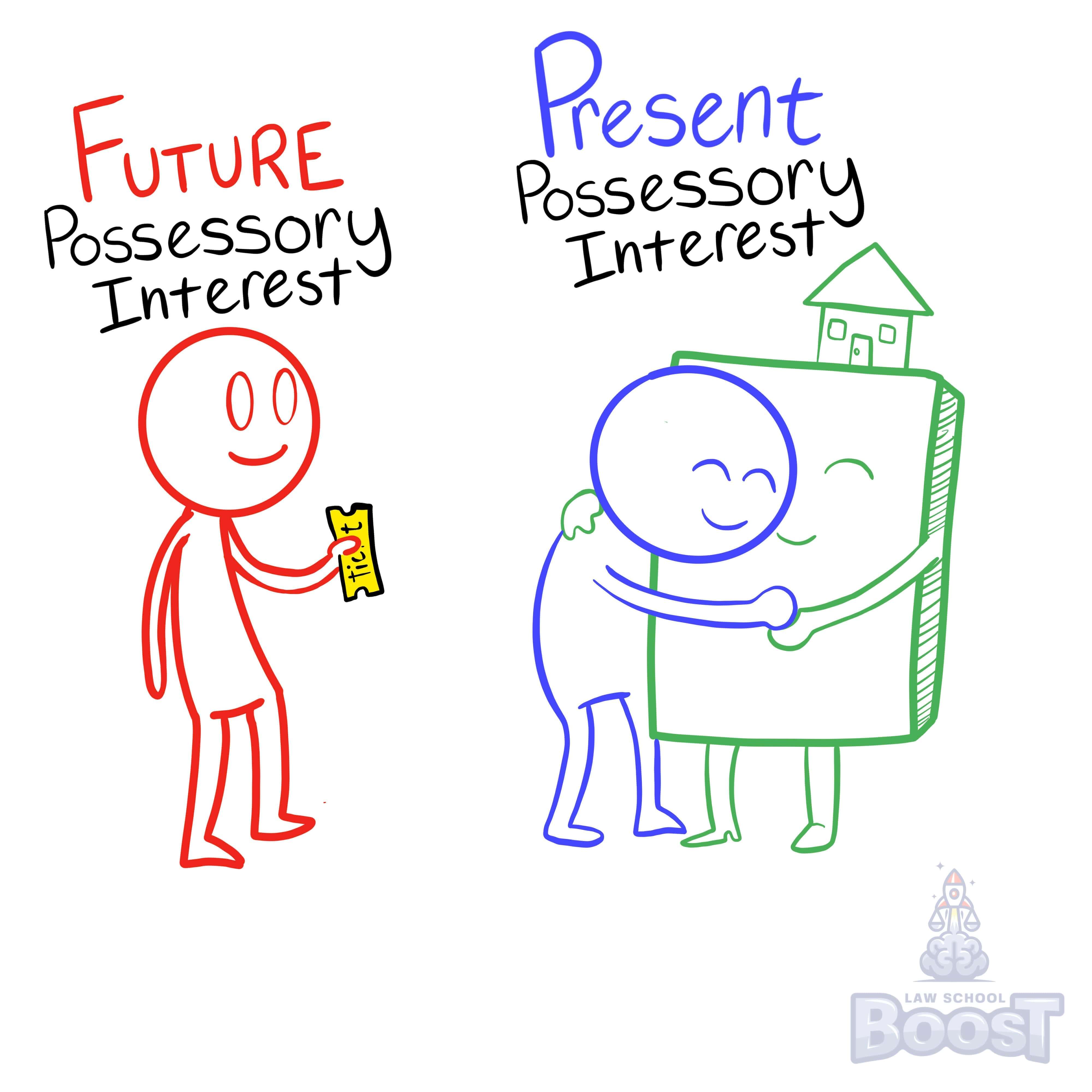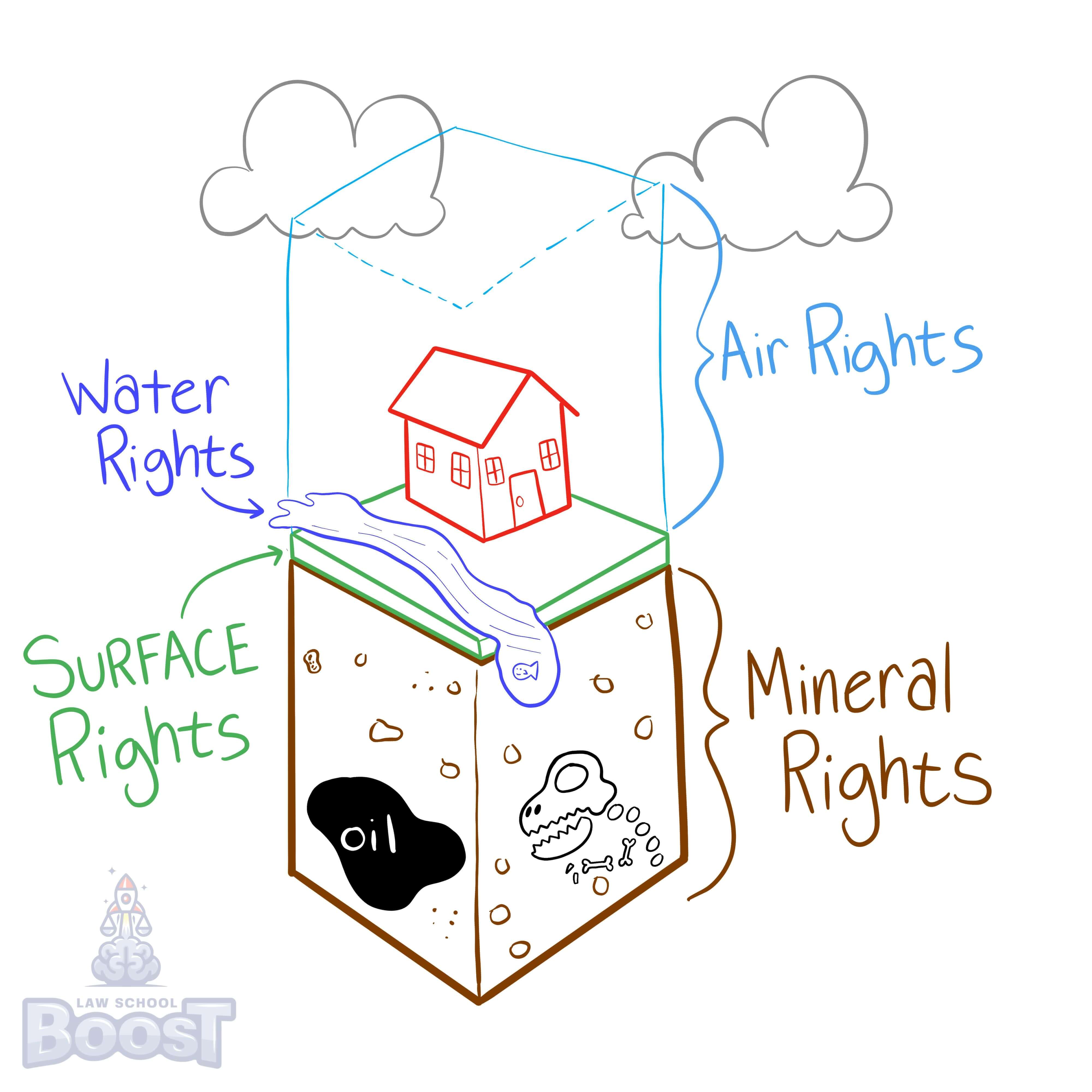😀
Real Property • Present Possessory Estates
PROP#014
Legal Definition
Affirmative waste is the exploitation of natural resources by a life estate holder, and is generally only permissible when: (1) it is necessary for repair or maintenance of the land; (2) the land is suitable only for such use; or (3) it is expressly or impliedly permitted by the grantor. In the case of mining, if mining has been carried out on the land before, the life estate holder may continue only as to the open mines.
Plain English Explanation
A life estate is only temporary ownership, even if it lasts a lifetime. The law wants to make sure that the people who have dibs on the land after the life estate is over get the land back in a condition that is nearly identical to that which the life estate owner had.
Affirmative waste occurs when the life estate holder exploits the land's natural resources. In other words, imagine you are given a life estate in a plot of land that includes a small cottage, a bunch of oak trees, and a small lake full of fish.
Do you have a right to live in the cottage? Absolutely. Do you have a right to walk around and enjoy the nature? Absolutely. Do you have the right to cut down an oak tree? No. Do you have a right to fish in the small lake? Maybe, maybe not -- it would depend on the facts and whether fishing was permitted by the grantor. For example, if the grantor was vegan and the lake acted as a fish sanctuary, then you would be expected to honor that.
We'll cover the exceptions to this rule in the hypos.
Affirmative waste occurs when the life estate holder exploits the land's natural resources. In other words, imagine you are given a life estate in a plot of land that includes a small cottage, a bunch of oak trees, and a small lake full of fish.
Do you have a right to live in the cottage? Absolutely. Do you have a right to walk around and enjoy the nature? Absolutely. Do you have the right to cut down an oak tree? No. Do you have a right to fish in the small lake? Maybe, maybe not -- it would depend on the facts and whether fishing was permitted by the grantor. For example, if the grantor was vegan and the lake acted as a fish sanctuary, then you would be expected to honor that.
We'll cover the exceptions to this rule in the hypos.
Hypothetical
Hypo 1: Oz conveys Blackacre "To Amy for life." Blackacre is a small plot of land with trees, a small lake, and a small cottage. One day, Amy noticed that one of the trees next to the cottage was causing cracks in the foundation of the cottage. Amy hired an arborist to come look. The arborist told Amy that the roots of the tree would continue to destroy the cottage foundation. Amy chooses to cut down the tree and remove its roots. Result: Trees are natural resources, and cutting them down is generally a form of affirmative waste. However, the reason Amy cut down this tree was because it is necessary for repair or maintenance of the cottage. Thus, it is a permitted form of affirmative waste.
Hypo 2: Oz conveys Mineacre "To Amy for life." Mineacre is a plot of land in the middle of nowhere full of mines, some active and some not. Amy hires a team of miners to extract minerals from the open mines. Amy chooses to open some of the closed mines to increase her income. Result: If Amy started mining on Blackacre, it would definitely be prohibited. After all, stripping Blackacre of its mineral resources is not at all within the normal use or permitted use of the land. In contrast, Mineacre exists solely for its mining value. Thus, you could argue that the land is suitable only for mining, which makes mining okay. What wouldn't be okay is Amy unilaterally deciding to open up additional mining locations on the land. That may require Amy to first get consent from the other parties with future interests in Mineacre.
Hypo 2: Oz conveys Mineacre "To Amy for life." Mineacre is a plot of land in the middle of nowhere full of mines, some active and some not. Amy hires a team of miners to extract minerals from the open mines. Amy chooses to open some of the closed mines to increase her income. Result: If Amy started mining on Blackacre, it would definitely be prohibited. After all, stripping Blackacre of its mineral resources is not at all within the normal use or permitted use of the land. In contrast, Mineacre exists solely for its mining value. Thus, you could argue that the land is suitable only for mining, which makes mining okay. What wouldn't be okay is Amy unilaterally deciding to open up additional mining locations on the land. That may require Amy to first get consent from the other parties with future interests in Mineacre.
Visual Aids




Related Concepts
How is a fee simple determinable created?
How is a fee simple subject to condition subsequent created?
In assessing a present possessory estate, what is ameliorative waste?
In assessing a present possessory estate, what is permissive waste?
What are the 3 types of waste a life estate holder may commit?
What are the present possessory estates?
What happens when a life estate holder renounces his interest?
What is a defeasible fee?
What is a fee simple absolute?
What is a fee simple subject to executory interest?
What is a fee tail, how is it created, and what is the result of its creation in most jurisdictions today?
What is a life estate?
What is a life estate pur autre vie and how is it created?
What rights and duties do the holder of a life estate have?
What will a court do if it is not clear whether someone intended to create a fee simple determinable or subject to condition subsequent?


